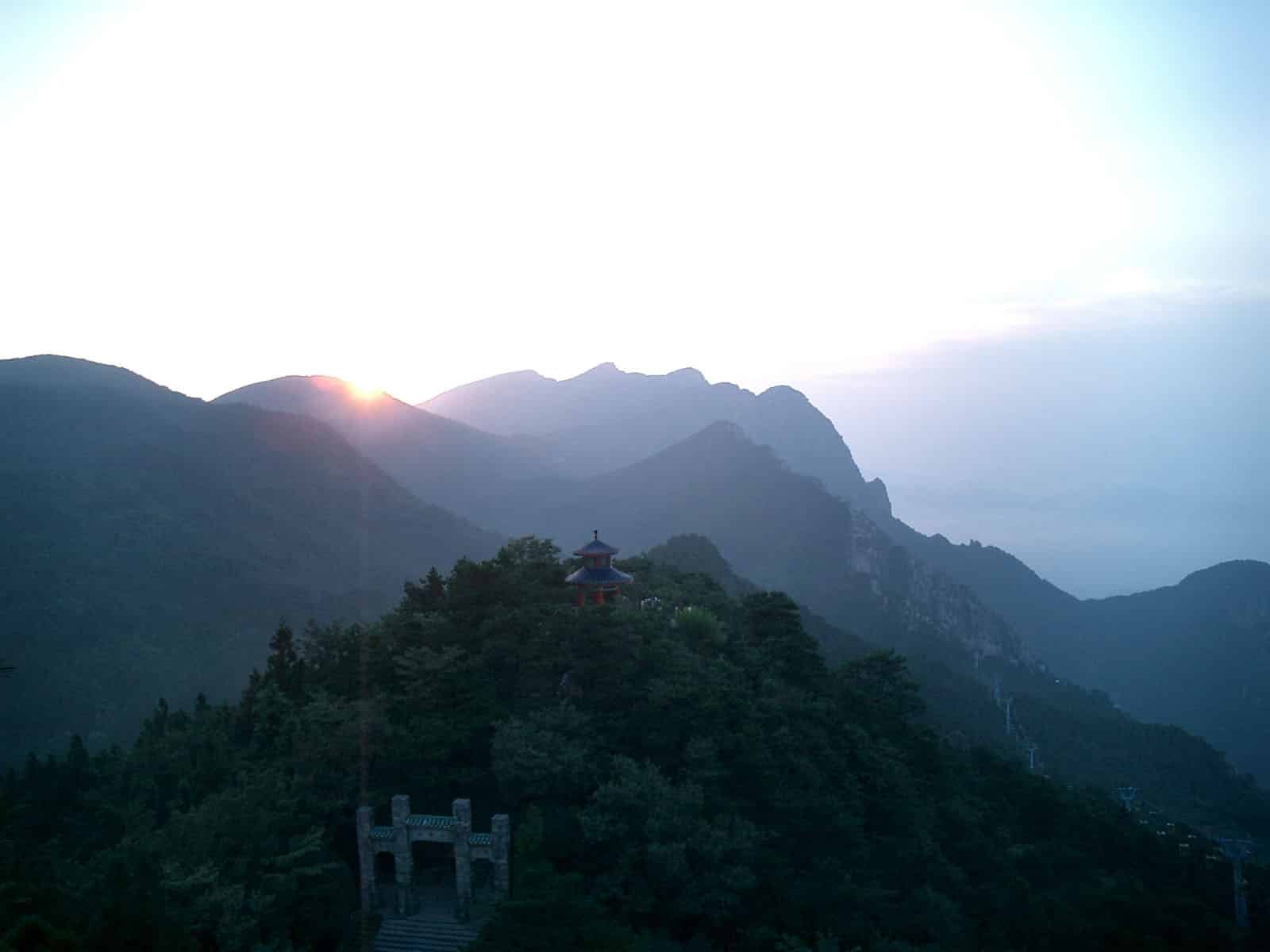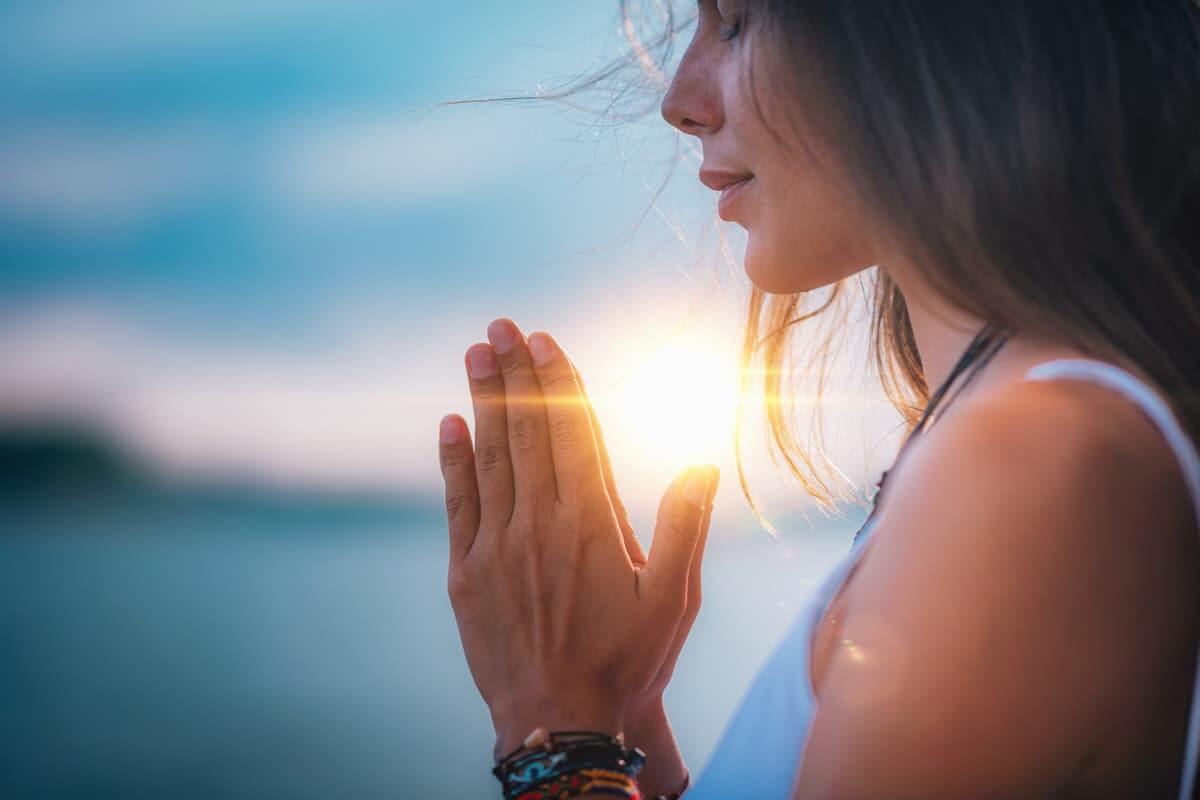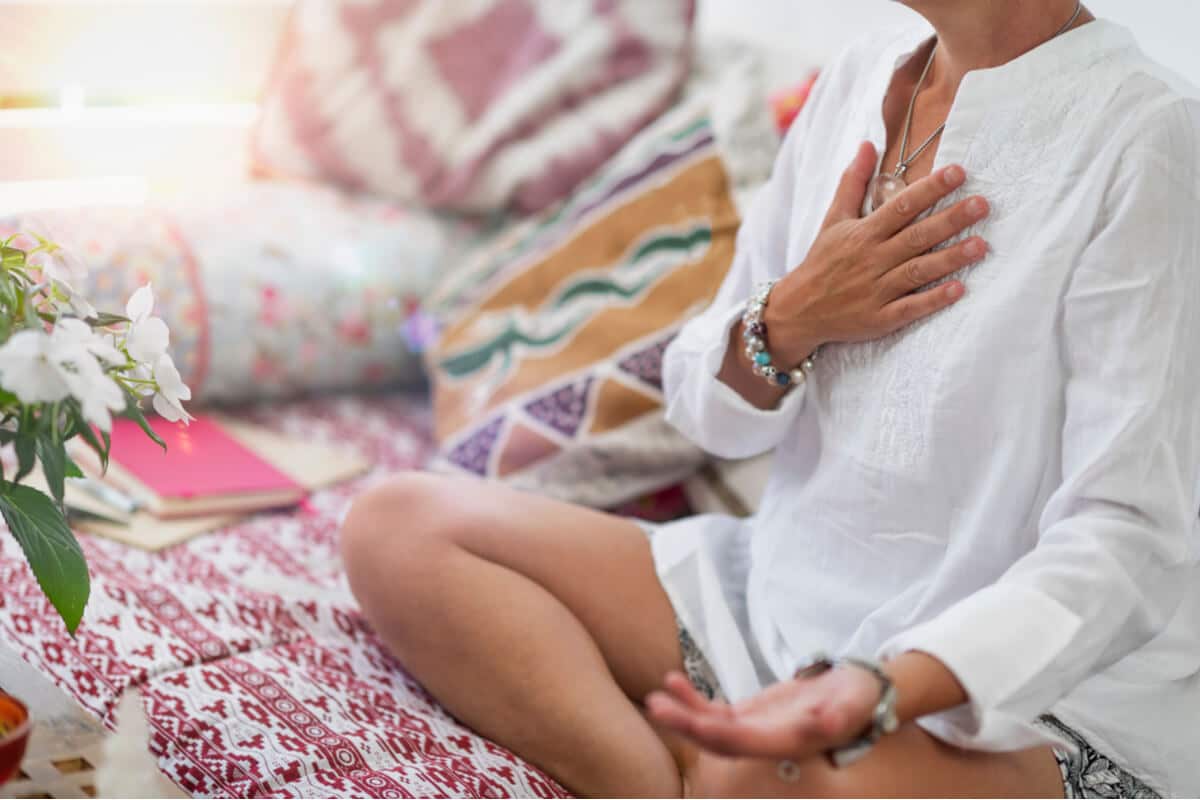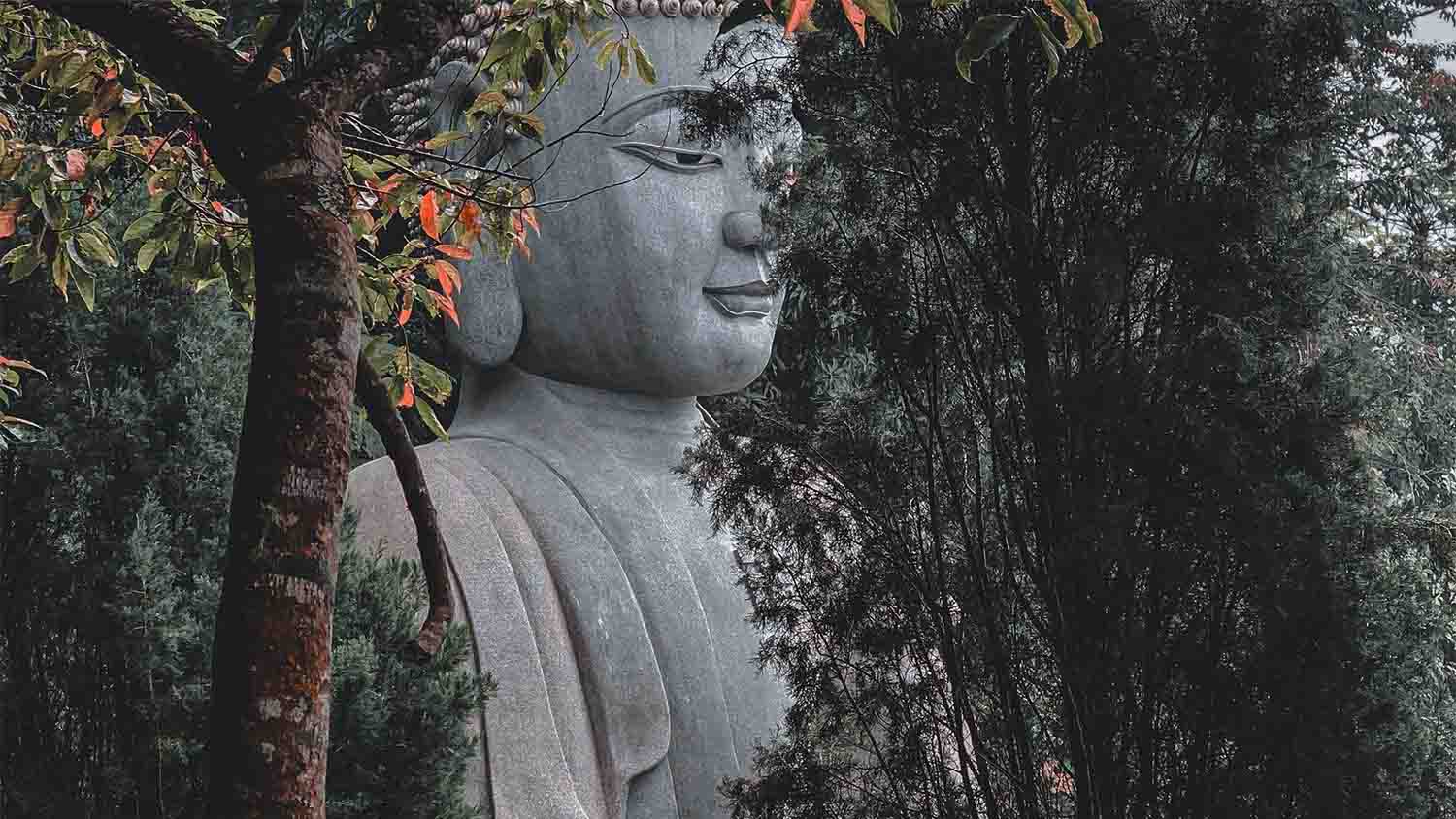The Buddha understood that his purpose was to help people attain enlightenment. By this he meant, to help people to see the truth so they could overcome the sufferings of old age, of separation, of infirmity, and of death.
It’s the Buddha’s vow, for example, to help the 6-year old who recently shot his teacher in the hand in Newport, Virginia, as well as the teacher, the students, the teacher’s parents, the mayor, and the reporters who reported on the story, as well as the reporters’ parents, editors, newspaper owners, those of us who read the story, and the cormorants that those of us who read the story might have seen gliding above the Hudson, not to mention the Hudson River itself, the sky, and the winter clouds listlessly drifting through our atmosphere. It’s the Buddha’s purpose to make all these things attain enlightenment, the so-called Unsurpassed Way.
So, the Buddha is busy, noble, and grand. He is an ideal against which to measure our lives, the visions, and futures for which we live— the values we enjoy practicing in our relationships with others.
But the language of Buddha isn’t suitable for newspapers and other media through which we hear about various atrocities. Buddha’s world does not—perhaps cannot—come through the news in a meaningful way. Nor do we expect it to.
Where then, do we go to renew our soul? How do we care for our spirit and the sources of purpose that sustain our best selves? Where do we go to attain a sense of completion, of rest, of peace, and of home?
Humans desire to know Mind, whatever it may mean. We love to be in nature where the world presents itself as—and we can feel one with—Mind. In nature we experience ourselves and our lives in and through a stream, in a mountain, in a lake or in the shimmering of the ocean. We come home to ourselves through nature.
Po Chü-i's Recored of the thatched hall on mount lu
A famous example of such homecoming is Po Chü-I’s Record of the Thatched Hall on Mount Lu (982 CE):
K’uang Lu, so strange, so superb, it tops all the mountains in the empire! The northern peak is called Incense Burner Peak, and the temple there is called the Temple of Bequethed Love. Between the temple and the peak is an area of superlative scenery, the finest in all Mount Lu. In autumn of the eleventh year of the Yüan-ho era (816) I, Po Lo-t’ien of T’ai-yuan, saw it and fell in love with it. Like a traveler on a distant journey who passes by his old home, I felt so drawn to it I couldn’t tear myself away. So on a site facing the peak and flanking the temple I set about building a grass thatched hall.
By spring of the following year the thatched hall was finished. Three spans, a pair of pillars, two rooms, four windows—the dimensions and expenditures were all designed to fit my taste and means. I put a door on the north side to let in cool breezes so as to fend off oppressive heat, made the southern rafters high to admit sunlight in case there should be times of extreme cold. The beams were trimmed but left unpainted, the walls plastered but not given a final coat of white. I’ve used paving and stairs, sheets of paper to cover the windows; and the bamboo blinds and hemp curtains are of a similar makeshift nature. Inside the hall are four wooden couches, two plain screens, one lacquered ch’in, and some Confucian, Taoist, and Buddhist books, two or three of each kind.
And now that I have come to be master of the house, I gaze up at the mountains, bend down to listen to the spring, look around at the trees and bamboos, the clouds and rocks, busy with them every minute from sun-up to evening. Let one of them beckon and I follow it in spirit, happy with my surroundings, at peace within. One night here and my body is at rest, two nights and my mind is content, and after three nights I’m in a state of utter calm and forgetfulness. I don’t know why it’s like this, but it is.
Chü-i’s account shows that to be at peace is to realize an environment that aligns our deep sources of purpose with the physical situation in which that purpose can be expressed. Peace requires our mind to establish harmony between our internal and external environments—two aspects of our so-called larger—capital ‘S’— Self. Chü-I had to leave his idyllic situation after two years because he was called back to work. Nevertheless, for two full years he was able to realize a momentary ideal.
For contemplatives like artists, poets, and philosophers, life is a kind of art in which the attainment of mastery—peace, rest, health, or a sense of wholeness—depends on our ability to reflect on the purpose for which we live and the vision we have for our life.
we're off the map
In the Wall Street Journal’s ‘The Weekend Interview’ Column on December 30, 2022, social psychologist Dr. Jonathan Haidt, who teaches at the NYU Stern School of Business, says that, “We have a whole generation [Gen. Z] that’s doing terribly.” By 2020 levels of anxiety and depression in the Gen. Z population are double what they were for the Gen. Y generation before them: 25% of Gen. Z girls suffered major depression up from 13% of Millennials when they were the same age, and 9% for Gen Z. boys up from 5% for Millennial boys when they were the same age.
Haidt believes that social media inflicts “extraordinarily high rates of anxiety, depression, self-harm, suicide and fragility.” And that there has, “never been a generation this depressed, anxious and fragile.” Interestingly, this phenomenon is peculiar to America, which is perhaps why friends of mine have chosen to move from Los Angeles to Portugal to raise their children.
One wonders: if Gen. Z is at this stage now, what hope is there for the six-year-old boy whose generation falls beyond the last letter of the alphabet? We’re off the map. Heading into an uncharted ocean of human life. How will we navigate the future?
We can choose to build the world we want to the extent that we are aware of what we’re choosing. But to build a good world, we must work with good materials. Interestingly, Haidt has discovered that feelings of moral elevation derived from stories about moral beauty, “cause a common set of responses, including warm, loving feelings, calmness, and a desire to become a better person.” Also, that, “feelings of moral elevation cause increases in milk produced during lactation in breastfeeding mothers.” What we chose to put into our minds has a profound effect on the physical reality in which we live.
We eat organic food to preserve the health of our bodies. And yet, somehow, for all our smarts about organic or slow or vegetarian food, we’re less discriminating about what we put into our minds. But the deleterious effects of a bad mental diet have more profound and damaging consequences on our health and on our happiness than the food that we eat.
Americans work more hours in a year than all but seven other high-income countries. But for what do we work so hard? How much of our work is devoted to preserving moral and spiritual elevation?
La Rochefoucauld (1613-1680)
17th Century moralist La Rochefoucauld (1613-1680) writes:
Of all our passions, the least well understood by ourselves is laziness. It is the most violent and malignant of all, though its violence is imperceptible and its ravages exceedingly difficult to see. If we carefully examine its power, we shall see that in every eventuality it takes over the mastery of our emotions, interests and pleasures. It is the remora, which has strength to bring the mightiest ships to a standstill, the calm that is more dangerous to important affairs than breakers and the fiercest tempests. The tranquility of laziness casts a secret spell over the soul that suddenly puts a stop to the most relentless pursuits and brings to nought the most unbreakable resolutions. In conclusion, this passion can best be described by saying that laziness is as it were a blissful state of the soul that consoles it for every loss and is welcomed as a substitute for every good.
(Maxim # 630 from the Penguin Classics translation by Leonard Tancock)
For La Rouchefoucauld laziness is not a matter of how many hours we spend at work to make money, but the extent to which we tend to the health of our souls. Indeed, it may be as the philosopher Kierkegaard has said: that the very busyness of worldly work is an expression of the extent to which we despair about the care and cultivation of our deeper sources of purpose and of the health of our souls. It’s an incredible paradox to think that the less we work in one way (for money) the more we can work in another (observing our mind for spiritual health and well-being).
To read good literature is a form of spiritual self-renewal.
In the chapter ‘Solitude’ from his book, Walden (1854), the naturalist, essayist, and philosopher Henry D. Thoreau (1817-1862) writes:
This is a delicious evening, when the whole body is one sense, and imbibes delight through every pore. I go and come with a strange liberty in Nature, a part of herself. As I walk along the stony shore of the pond in my shirt sleeves, though it is cool as well as cloudy and windy and I see nothing special to attract me, all the elements are unusually congenial to me. . . Sympathy with the fluttering alder and poplar leaves almost takes away my breath; yet, like the lake, my serenity is rippled but not ruffled.
Optimistic, Morally, generous, and spiritually contributive people accept the challenge of spiritual development. Perhaps by attending to our minds’ inner signals we can help each other find and live Po-Chü I’s way “of utter calm.” And learning how to connect with the mind of all beings, we can return home to the Buddha’s Unsurpassed Way, our true Mind: “the lake . . . rippled but not ruffled.”






